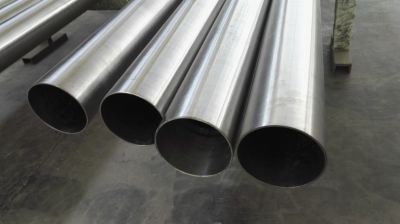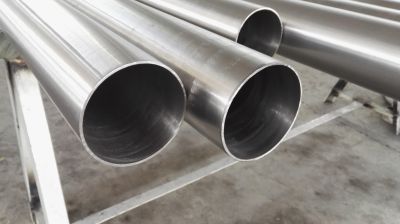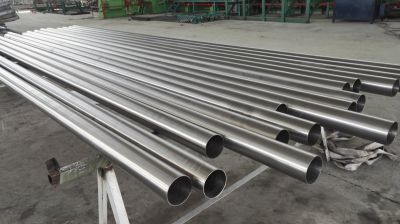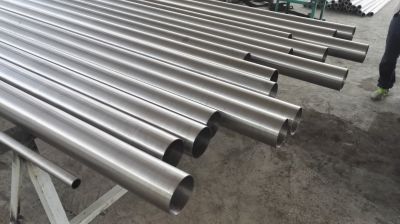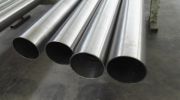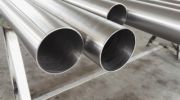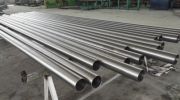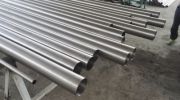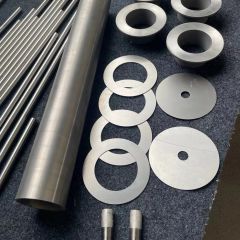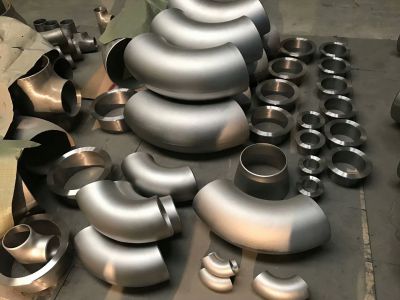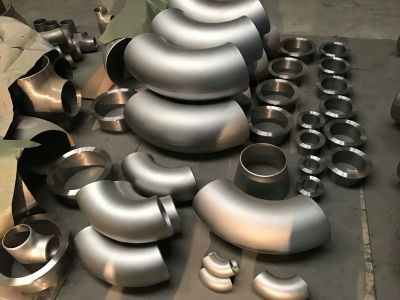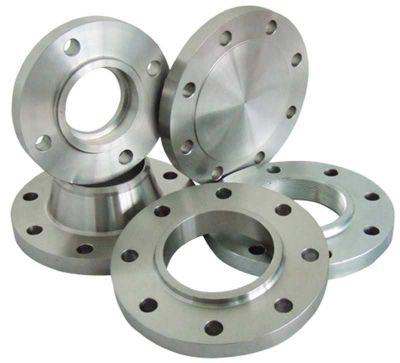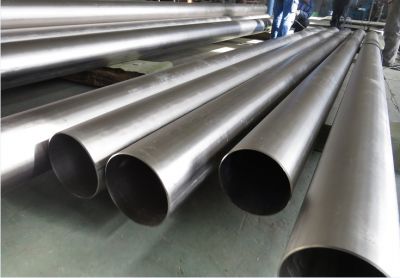ASTM B861: 1/2 inch to 36 inchesASTM B338: 1/2 inch to 36 inches
As an established supplier of titanium tubes in China, we are dedicated to offering superior-quality products. We understand the significance of using reliable and durable materials across industries; thus our titanium tubes are manufactured with precision and expertise.
Titanium tubes can be found in applications across industries including aerospace, chemical processing, oil & gas production, medical and more. We provide them in different sizes, wall thicknesses and lengths to meet customer specifications.
Hengze Industry Co., Ltd. prioritizes customer satisfaction and strives to offer outstanding service. Our team of expert and technician personnel ensure that every titanium tube sold meets required specifications and standards prior to being distributed to our customers. In addition, we offer customization services so we can tailor each tube according to each of their unique needs.
Hengze Industry Co., Ltd can meet your titanium tube needs whether for an immediate project or long-term partnerships. Get in touch today to discuss what you require or for additional information about our titanium tubes and other products!
Titanium tubes find many applications within power plants, chemical plants and marine/offshore industries. Titanium Tubes for Power Plant Heat Exchangers: Heat exchangers made of titanium tubes can often be found within power plants to efficiently transfer heat between fluids. Titanium's corrosion-resistance and thermal conductivity makes this material perfect for providing efficient heat transference between various fluids in these applications.Condensers: Titanium tubes can also be found in condensers, used to cool and condense steam back into water. As titanium's corrosion-resistance makes it ideal for handling seawater or other potentially aggressive cooling mediums. Titanium tubes are widely utilized for use in cooling systems at power plants, including cooling water systems or auxiliary coolers. Due to its exceptional resistance against corrosion and erosion, titanium makes an excellent material choice when continuously exposed to harsh cooling water conditions.
Chemical Plants: Reactors: Titanium tubes are widely utilized as reactors for chemical processing due to their great corrosion resistance against aggressive chemicals and high temperature environments.
Piping Systems: Titanium tubes are widely utilized within chemical plants to transport fluids or gases with high corrosion risks; other materials could corrode quickly under these circumstances, yet titanium stands the test. Titanium's corrosion-resistance helps guarantee integrity within these piping systems.
Marine/Offshore:Whipbuilding : Titanium tubes have many marine applications, from shipbuilding to water treatment systems and desalination plants, cooling systems and cooling towers, due to their resistance against saltwater corrosion.
Offshore platforms: Titanium tubes are frequently utilized in the construction of offshore platforms and rigs due to their ability to withstand marine environmental conditions with great resilience ensuring structural integrity and longevity of these platforms.
Subsea pipelines: Titanium tubes have long been utilized as subsea pipes due to their superior corrosion resistance and strength; their applications extend far below seafloor conditions with ease. Their durability also make it well suited for extended subsea use.
Titanium tubes are preferred materials in power plant, chemical plant and marine/offshore structures because of their resistance to harsh environments, high temperatures and mechanical strain. Their superior durability, reliability and performance contribute to safe operations of power plants, chemical plants and marine/offshore structures.
Dimensions and Tolerances: WT thickness should range between 0.16 inches (0.41 mm) to 0.065 inches (1.65 mm). Length can range up to 24 feet (7.32 meters). On occasion mechanical properties will also be discussed.
Tensile Strength: Minimum requirements vary based on grade and condition of titanium tube.
Yield Strength: The minimum requirements can also differ, dependent upon grade and condition.
Elongation: Elongation requirements after fracture vary based on grade and condition. Chemical Composition: Titanium content should be specified by the buyer.
Alloying Elements: The composition of alloying elements such as aluminum, vanadium and others should adhere to specified limits. Hydrostatic Test: Each tube shall undergo a hydrostatic pressure test in order to ensure it can withstand hydraulic pressure without leakage or permanent deformation.
- Outer Diameter (OD): Ranging from 1/8 inch (3.18 mm) to 12 inches (304.8 mm)
- Wall Thickness (WT): Starting from 0.016 inch (0.41 mm) up to 0.5 inch (12.7 mm)
- Length: Customizable, typically available in random lengths or cut lengths





 Hengze Industry Co., Ltd.
Hengze Industry Co., Ltd. 